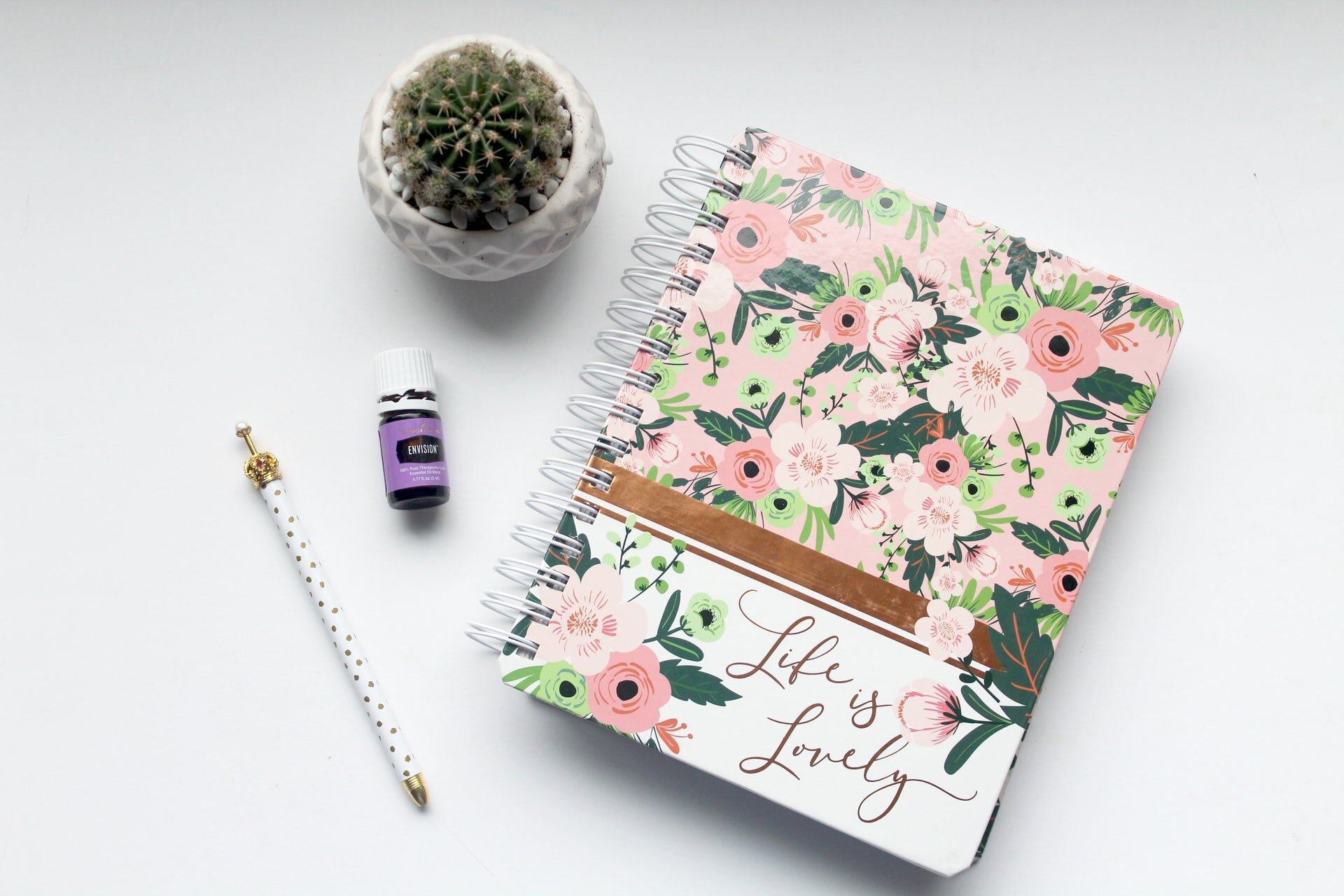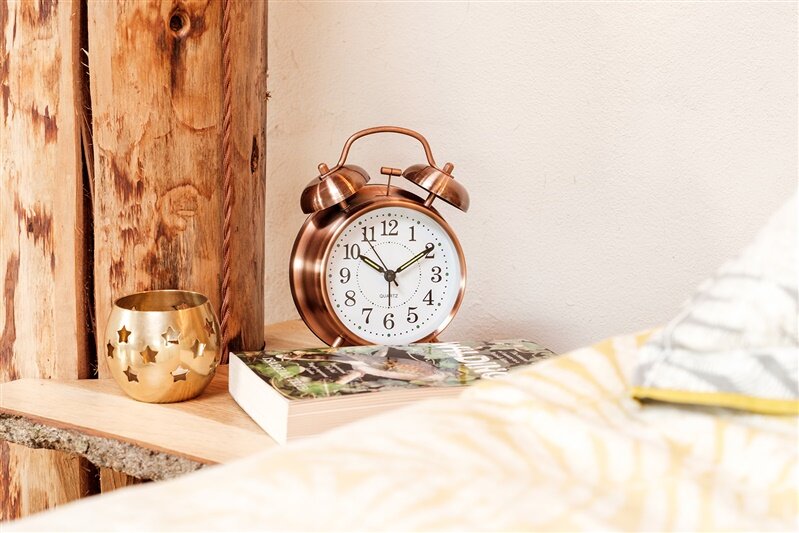Fall asleep faster - 10 tips to improve your slumber
The sound of your alarm shocks you out of a deep sleep, one you’ve been fighting for all night. This is the fourth time you’ve hit the snooze button and you’re now struck with the panic and frustration of having overslept.
You’ve been tossing and turning for what felt like the entire night. With despair you remember waking up at 3am needing the toilet…..again.
Did you really even get back to sleep?
You feel heavy, groggy and stressed before the day has even begun.
A night like this can make the following day drag torturously by. It affects your mood, your concentration and your energy levels and over the long term the effect is even worse; your memory suffers, your immune system weakens and you are at risk of raised blood pressure, heart disease and diabetes.
Sleep is not something to only do ‘when you’re dead’, it is absolutely critical to your experience of life. You snooze, you win! Despite this, a study has shown that 67% of UK adults suffer from disrupted sleep and 23% don’t manage more than five hours a night.
I’ve struggled with sleep for a long time, in addition to suffering the long-term sleep deprivation of a parent. I've recently worked hard on improving my sleep hygiene (perhaps a little bit obsessively) and I've felt my mood, energy, patience, relationships, productivity and many other parts of my day improve dramatically. Here I share my top tips so you can enjoy a good night’s sleep too.
5 simple ways to improve your sleep:
1. Exercise
It’s not easy, but making exercise a part of your daily routine is amazing for your health in so many ways. Regular exercise can improve your daytime energy levels, as well as giving you a satisfying feeling of well-earned tiredness that will have you drifting off into deep and restful slumber at bedtime.
Yoga, cardio, strength training, walking, gardening, tree-climbing. It doesn’t really matter what you do, just get your body moving every day in some way. If you are just starting out, Dr. Rangan Chattergee recommends you start by committing to doing a simple 5 minute bodyweight routine while you are waiting for your morning coffee to brew. Consistent small steps make a really big difference.
Avoid intense training within 2 hours of bedtime though, as you’ll most likely still be buzzing with energy when you want to sleep.
2. Increase exposure to natural daylight
Ever noticed how pleasantly tired you feel after a day out at the beach or in the countryside?
Getting outside helps to keep your body’s sleep-wake cycle in sync with the cycle of day and night. Studies have shown that spending time in a natural environment can help improve sleep, and researchers recommend a week of camping as a way to thoroughly reset your body clock to help you sleep longer and deeper.
Norfolk is known for its dark skies and lack of light pollution, so rural glamping in Norfolk could be the perfect remedy.
Have breakfast outside; go for a morning run in the park; take a short, brisk walk in the woods; walk to work. If you don’t have time to walk, at the very least open your car windows during your commute.
3. Keep a consistent, relaxing bedtime routine
Creating a simple routine will signal to your brain that it’s time to start winding down.
Set a bedtime alarm to remind you to start your routine until it becomes a habit you know you’ll stick with. I start by brushing my teeth about an hour before bed. Following this I write down anything I need to remember and a plan for the next day, which helps declutter and calm my monkey mind. I usually then put on some music and read for a while.
You could try a warm bath, some relaxing essential oils, stretching, using a foam roller or journaling. Experiment and find a routine that helps you to relax.
4. Avoid screens in the 30 mins before bed
The blue light - short wavelength, high energy light in the visible spectrum - emitted by our screens and other forms of artificial light messes with our circadian rhythm - our natural sleep-wake cycle - because it tricks our eyes into thinking we are still seeing daylight. Blue light has been shown to strongly suppress melatonin production (a hormone needed for a good night sleep).
Tv, computers, phones and e-readers have no place in your bedtime routine. In addition to avoiding sleep-disturbing blue light, a tech free evening routine will help you avoid the trap of involuntarily falling into a scrolling stupor until long past your intended bedtime.
Try creating a relaxing environment by turning off, or dimming bright lights as these also interrupt the signal for your body to rest. For a softer, more natural light light candles or, if you really want to take it seriously, get yourself a pair of blue light blocking glasses. Blocking blue light, or just turning down the lights and avoiding screens will have a really positive effect on your sleep.
5. Don’t eat too close to bedtime
I know it can be hard to resist that habitual late night snack, but your sleep will improve if you do.
Other than the uncomfortable feeling of trying to sleep with a full stomach, you could cause yourself indigestion, acid reflux or heartburn. Eating too close to bed also means that the muscles that digest and metabolise your food are hard at work instead of letting you rest.
Try to leave 2 hours between your last meal of the day and your bedtime. You could also try to avoid drinking anything within 2 hours of bedtime to avoid those nocturnal toilet trips.
Think about avoiding caffeine too. I realise that you probably don’t want to hear it, but studies have shown that it can take up to 10 hours to fully leave your system. I find that if I don’t have any caffeinated drinks after midday then I am fine, otherwise it takes me ages to get to sleep.
Quality over quantity
Even if you are diligently spending the recommended 7-9 hours in bed, you might still be struggling to sleep well.
Quality of sleep is paramount.
To be at your best, your body needs to cycle through different sleep states every night, including light sleep, deep sleep and REM sleep. It’s important that you aren’t disturbed too frequently, as interrupting these cycles can lead to lower quality sleep.
It’s normal to experience mini interruptions in your sleep throughout the night. These are usually short and most likely you won’t even notice them, but they can amount to a loss of around an hour of sleep, so don't forget to account for this when planning your 7-9 hours.
If you find that you’re regularly awake for longer than an hour in the night, you may be suffering from a lack of sleep quality.
Your environment is often the key to improving the quality of your sleep.
How to create a high quality sleep environment:
1. Keep it cool
Try to maintain a temperature of around 18C in your bedroom. Leave the heating off in your room.
In the warmer summer months you might need a fan in your bedroom, or you could invest in a cooling mattress pad (gel or water cooled) to keep your body temperature cool enough for a restful sleep.
2. Keep it calm
An over-stimulating or chaotic bedroom space will make it hard for your brain to switch off. If you have mountains of washing next to your bed, or clutter on every surface, these will be subconsciously competing for your attention and delaying your rest.
Try to recreate the intentionally relaxing atmosphere you enjoy when on holiday, for example by using:
Restful colour schemes - use soft, cool, pastel colours; avoid bright, stimulating, primary colours.
Soft furnishings - at Round the woods we use high quality cotton bedlinen, comfortable cushions in complementary colours and inviting cosy throws to accent the foot of your bed.
Air purifying house plants - Aloe vera, or spider plants can help you sleep better by increasing oxygen levels and purifying the air you breathe all night.
3. Keep it dark
Turn off, remove or cover up any light emitting devices. I recently went so far as to put tape over a standby light on an extension cable by my bed and have noticed a positive difference.
I love an eye mask, especially if you can find one that fits comfortably and if you have a street light outside your window a mask can be a huge help. You could opt for blackout curtains, however personally I’m not a fan as I’ve found myself totally disoriented and confused when waking up in complete darkness. Although it is vital to have a dark environment to sleep in, there is something very satisfying about waking up with the sun on your skin.
4. Keep it quiet
Remove anything noisy (for example ticking clocks - we provide one that doesn’t tick!).
If you can’t control the noise consider blocking it out using ear plugs, nature sounds, a white noise machine or a fan.
Set your phone to aeroplane mode if you keep it by your bed as an alarm clock. If not, put it on the other side of the room or better still in another room altogether to help you resist the urge to use it while you’re in bed.
5. Keep it comfortable
Research shows that a decent, comfortable bed is worth, on average, an extra 42 minutes of sleep per night. That adds up to 15,000 minutes, or 250 hours, over the course of a year!
When you come glamping in Norfolk at Round the Woods, you’ll see we’re obsessed with comfort. We provide Hungarian Goose Down pillows and duvets (we appreciate that this is not ideal for everyone; we also have high quality microfiber bedding available on request), 100% cotton bed linen, supportive yet comfortable mattresses and mattress toppers. Take a look at Soak & Sleep if you’re looking to improve your mattress or bedding, we highly recommend them and so do our guests! Our guests in the past have gone home and bought the exact bedding we provide because they’ve slept so well.
“The comfiest bed ever”
“The bed is so comfy and we’ve decided to order some of the exact pillows that they use. We didn’t wake up until 9 each morning because we were so relaxed. ”
Comfort is key to a good night of rest.
You may not have given much thought to your own mattress, pillow or duvet. Surely a pillow’s a pillow, right? Wrong, I'm afraid. You can have a pronounced effect on the comfort of your bed and the quality of your sleep by choosing a mattress and pillow that suits your needs. There are many things to consider, such as the position you sleep in - back-sleeper, side-sleeper, face down in the pillow-sleeper? - the materials used, the filling and whether you suffer from allergies. Our friends at Soak and Sleep - whose products help make the beds at Round The Woods so incredibly comfortable - have produced some great guides to help you make the best choice.
Imagine this…
A soft, warm morning light stirs you gently from your sleep. You open your eyes, breathe a deep and satisfying breath of air, stretch and snuggle back into the warmth of your bed. You’re wide awake and hop out of bed feeling refreshed, energised, clear-headed and ready for anything.
This really could be you! And it’s how I now feel when I greet a new day (most days).
Does this feel unattainable, like some kind of magic to you? I promise if you put these steps and daily habits into action you’ll notice a positive difference to your mood, patience and overall happiness, not to mention the health benefits. A good night’s sleep really does make all the difference in your ability to cope with everything life throws at you.
What are you waiting for? Start applying these tips today and begin to see improvements in your sleep quality right away.
Do you know someone who would benefit from our 10 tips? Do their sleep and happiness a favour by sharing this article with them, they’ll be forever grateful you did!
For more information and support in improving your sleep, The Sleep Council has some excellent resources. You can follow their 30 day sleep plan to help you change your habits and improve your sleep. If you are regularly struggling with insomnia or daytime sleepiness that is getting in the way of normal life, please consult a doctor.










